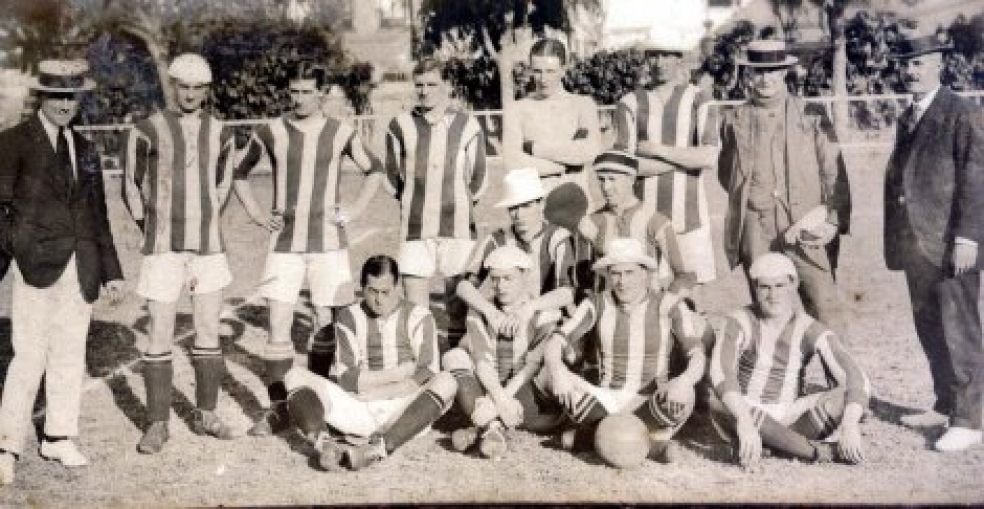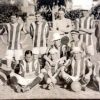
From footballers to soldiers, and back again
Monday saw the 100th anniversary of the most horrific episode in human history: the start of World War One. The outbreak of war saw millions of people enlist to serve their country across Europe; including 15 first team Exeter City footballers, who made up around 2,000 professional footballers to enlist during the war.
In 1914, Buenos Aires's emerging football community sent an invitation to the FA for an English team to travel there to play local sides.
The Grecians embarked on an historic tour of South America, which saw them play in Argentina and Brazil, in the summer of 1914. They were chosen by the Football Association for being a typical British club, who were a “truly representative side”. Fifteen first team players , who later became known as the ‘tourists’, played eight games; winning five of them, drawing one and losing two. One of those defeats came in a match that kicked off just an incredible 12 hours after they got off the boat that they had been on for 18 days from Southampton to Rio de Janeiro.
However their tour got off to an embarrassing start. They stopped off at Santos, and the entire team was arrested. They had gone for a swim in the sea, completely unaware that bathing was banned at that beach. After talking to a local police commissioner they were released, and had it not been for a sympathetic officer, their trip may have ended before they kicked a ball.
The match that is remembered most famously is the game that saw them play the Brazilian national team. The capacity of the ground, which was 6,000, was full hours before kick-off, and the total attendance is reported to have been around 10,000. This is thought to be Brazil’s first ever game. The result of the match is disputed to this day, most sources say Exeter lost 2-0, whereas others say it finished as a 3-3 draw. At the end of the match, the Brazilian players were carried off on the shoulders of the crowd. They were overjoyed with the result, a reported 2-0 to Brazil, and one newspaper wrote: "praise for the correctness and mastery with which the Brazilians had rendered useless the efforts of the English professionals".
The match took place on 21st July at the Laranjeiras Stadium, in the country’s capital Rio de Janeiro. The ground is home to the Brazilian first division team Fluminese. To mark the 100th anniversary of their tour, the start of the war and to celebrate the formation of the Brazilian national team, Exeter City travelled to Brazil in July to play Fluminese. There was no dispute over the score in this match, and it finished 0-0, on the 20th of July.
War was declared on 4th August 1914. At the time the war began, Exeter were sailing home, and were somewhere in the Atlantic. The 15 players on the ship were shot at, but luckily made it back to England safely. All 15 of those players were to serve in the First World War, and astonishingly all were to survive.
The club did lose some men during the war. The men that died played for Exeter’s amateur team and so didn’t travel to Brazil. The first to die in battle was George White, who captained the amateur team during the 1913/14 season.
The first player of the touring team to enlist was winger Fred Goodwin. He was described as a “robust clever forward” who was quick and skilful. He joined the 17th Service Battalion of the Middlesex Regiment, known as the Footballers Battalion as it was primarily made up of professional footballers. It is thought that about 500 of the 600 soldiers in that regiment died.
Fred Goodwin wouldn’t play football again after the war due to injury, and neither would his teammate Bill Smith, who lost a leg.
Another player who toured South America, Sam Strettle, served at Ypres. He won the Military Medal for his service, and in 1919, returned to football.
Local player, fisherman and goalkeeper Dick Pym joined the Devonshire Regiment in 1916, where he served as a physical training instructor. After the war he played football again. He was the Bolton Wanderers goalkeeper in the first ever FA Cup final to be played at Wembley Stadium in 1923. Pym had joined Bolton from Exeter two years earlier for a record £5,000, which enabled Exeter to buy their own home ground, St James Park. Pym played for England three times during his career. He lived until he was 95 and died in 1988, earning him the record of the longest-lived England footballer.
Football had created an unforeseen patriotism among the Brazilian people. A few decades later football was to become the greatest symbol of their national identity.













